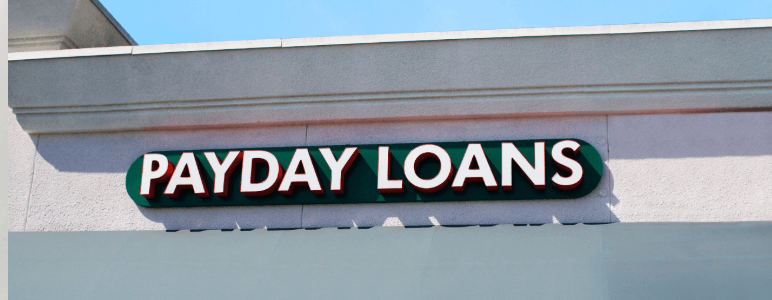A Complete Guide to Short-Term Emergency Lending
When unexpected expenses hit and your bank account is running low, the bright neon signs of payday lenders can seem like a lifeline. These short term financial solutions promise quick cash with minimal paperwork, but they come with costs that can trap borrowers in cycles of debt. According to research, the typical borrower takes out eight payday loans per year, spending $520 on fees for an average of $375 in credit.
Understanding how payday loans work, their true costs, and available alternatives is crucial for making informed financial decisions. Whether you’re facing an emergency expense or simply exploring your options, we will help you navigate the complex world of short term cash lending and short term loans.
Key Takeaways
- Payday loans are short-term, high-cost loans typically for $500 or less, due on your next payday
- These loans carry extremely high APRs, often around 400%, compared to credit cards which range from 12-30%
- Fees typically range from $10-30 per $100 borrowed, varying by state regulations
- Several alternatives exist including credit union loans, employer advances, installment loans, and payment plans with creditors
- Military personnel are protected by the Military Lending Act which caps rates at 36% APR
What Are Payday Loans?
Payday loans are small, short-term, unsecured loans designed to provide immediate cash until your next payday. Typically ranging from $100 to $500, the maximum loan amount varies by state regulations. Unlike traditional bank loans requiring extensive credit checks, payday lenders focus on income verification and your ability to repay from your next paycheck, often without a formal credit report review.
These short-term loans involve borrowing money against your upcoming paycheck and repaying the full amount plus fees in a single payment, usually within two weeks. This differs from installment loans, which allow repayment over several months in smaller installments.
Most payday loans cover recurring expenses like utility bills, rent, and car repairs. According to the Community Financial Services Association (CFSAA), borrowers often use payday loans when traditional credit is unavailable due to poor credit or limited banking.
Payday lenders operate through storefronts and online loan platforms, serving millions annually. The appeal lies in accessibility, as most payday lenders require no credit check, making them available to many consumers. However, this convenience comes with high costs that borrowers must consider carefully.
How Payday Loans Work
Applying for a payday loan is a fast and straightforward way to access small dollar amounts for short term financial needs. To qualify, borrowers generally need to show steady income, an active bank account, and valid ID, with some lenders requesting proof of residence or references.
Funds are typically delivered the same day as cash, check, prepaid card, or direct deposit. Repayment is usually a single payment on your next payday, made via post-dated check or automatic withdrawal.
If you can’t repay on time, many payday lenders offer rollovers that add fees without reducing the principal, often trapping borrowers in a cycle of debt. While some states limit rollovers or require no-cost extended payment plans, enforcement varies. Unpaid loans may result in overdraft fees, collections, and negative credit report impacts.
Requirements for Payday Loans
To qualify for a payday advance, you typically need to provide:
- Proof of regular income
- A valid bank account
- Government-issued identification
- Some lenders may also require proof of residence or references
Quick Process for an Online Payday Loan
The process for obtaining an online payday loan usually involves three straightforward steps:
- Fill out the online application with your personal and financial details
- Submit necessary documents for verification
- Get loan approval and receive funds via direct deposit, often within the same day
Payday Loan Costs and Fees
Payday loans are expensive due to their fee structure. Lenders typically charge $10 to $30 per $100 borrowed, depending on state rules. While this seems manageable for a two-week loan, the annual percentage rate (APR) is much higher.
For example, borrowing $400 with a $60 fee for two weeks equals a 391% APR annually. Credit cards usually charge between 12% and 30% APR, making payday loans far costlier.
If borrowers can’t repay on time, rollovers add fees without reducing the principal. That $400 loan with a $60 fee can grow to $460 after one rollover, $520 after two, and so forth. Research shows the average payday borrower stays in debt five months yearly, paying more in fees than the loan amount.
Additional fees like $20 application charges and $25-35 returned payment fees can increase costs further.
| Loan Amount | Fee | Total Due | Two-Week APR | Annualized APR |
| $100 | $15 | $115 | 15% | 391% |
| $300 | $45 | $345 | 15% | 391% |
| $500 | $75 | $575 | 15% | 391% |
State regulations greatly affect payday loan costs. Some states cap interest rates, limiting payday lending, while others allow high fees. This patchwork creates varied experiences for consumers.
The Community Financial Services Association (CFSAA) report entitled payday advance argues payday loans serve different customers than traditional credit. However, consumer advocates warn that high costs can cause long-term financial harm.
State Regulations and Legal Framework
Payday loan rules vary widely across the United States, creating a complex system of protections and restrictions. Currently, 17 states plus Washington D.C. have banned payday lending by capping interest rates below levels that make payday loans profitable. For example, states like New York and Pennsylvania limit annual percentage rates (APR) to 36% or less, effectively prohibiting payday loans.
In contrast, some states such as Texas have few restrictions, allowing payday lenders to charge fees that lead to APRs over 400%. The maximum loan amount and fee structures differ significantly by state.
Some states take a middle ground by limiting how many payday loans a borrower can take or requiring lenders to offer no-cost extended payment plans if repayment is difficult. These rules aim to balance access to credit with consumer protections.
Regulation enforcement involves state agencies and the federal Consumer Financial Protection Bureau (CFPB). However, the growth of online payday lending, including lenders using tribal partnerships to evade state laws, has made oversight more challenging.
Borrowers should always verify that lenders are licensed in their state to ensure legal protections.
Military Protections
Active duty military personnel and their dependents are protected by the Military Lending Act (MLA), which caps the Military Annual Percentage Rate (MAPR) at 36% for payday loans and other short-term financial products. This cap includes all fees and charges, making these loans more affordable compared to civilian rates.
The MLA covers active duty servicemembers, their spouses, children, and National Guard and Reserve members on active duty over 30 days, regardless of location. It also prohibits lenders from requiring arbitration, waiving legal rights, or automatic payroll allotments.
Enforcement is handled by the Department of Defense and military legal offices (JAG), which provide free legal help. Servicemembers can report violations to JAG, the Consumer Financial Protection Bureau, or state regulators. Despite protections, military borrowers should remain cautious, as some lenders may try to bypass the law, especially online lenders.
Responsible Borrowing
Payday loans can be a fast solution for emergency expenses, but they come with high costs and short repayment terms, which can increase financial risk if not managed carefully. The longer the loan remains unpaid or gets rolled over, the more expensive it becomes. Borrowing only what you can repay on time helps avoid unnecessary fees and debt cycles.
To borrow wisely, always:
- Review the loan terms, including APR, fees, and the due date before accepting
- Borrow only the amount you need, not the maximum available
- Make sure repayment fits comfortably into your next paycheck
- Avoid rollovers whenever possible—they increase total costs
- Ask questions and make sure everything is clear before signing
Remember, payday loans are designed as short-term solutions, not long-term financial fixes.
Alternatives to Payday Loans
Before turning to payday loans, consumers should explore several alternatives that typically offer lower costs and less risk of creating debt cycles. These options may require more time or effort than payday loans, but they can save hundreds of dollars in fees and interest charges.
Credit Union Loans
Credit unions represent one of the most attractive alternatives to payday lending. Many credit unions offer small-dollar loans specifically designed to compete with payday loans but at much lower costs. These loans may offer rates around 28% APR compared to the typical 400% APR of payday loans. To qualify for credit union membership, you may need to meet certain eligibility requirements, but these are often more accessible than traditional bank loan qualifications.
Employer-Based Paycheck Advances
Employer-based paycheck advances provide another viable alternative for workers facing short term cash needs. Many employers offer formal advance programs that allow employees to access a portion of their earned wages before the regular payday. These advances typically carry minimal fees, if any, making them significantly less expensive than payday loans. Some companies partner with third-party providers to offer these services, while others handle advances internally.
Credit Card Cash Advances
Credit card cash advances, while expensive, often cost less than payday loans. Most credit cards charge a cash advance fee of 3-5% of the amount borrowed plus interest rates typically ranging from 12-30% APR. For short term borrowing, this can be substantially less expensive than payday loan fees, especially if you can repay quickly to minimize interest charges.
Installment Loans
Installment loans offer another alternative, allowing borrowers to repay borrowed amounts over a longer period through scheduled payments or installments. This can reduce the financial strain compared to single payment payday loans, although interest rates may still be higher than traditional loans. Installment loans can provide more manageable repayment options for those needing short term loans.
Payment Plans with Creditors
Payment plans with creditors represent a proactive alternative that can prevent the need for emergency borrowing. Many utility companies, landlords, and other service providers will work with customers facing temporary financial difficulties. Contacting creditors before missing payments often yields better results than waiting until accounts become delinquent.
Emergency Assistance Programs
Emergency assistance programs operated by nonprofits, religious organizations, and government agencies can provide help with specific expenses like utility bills or rent. These programs may offer grants rather than loans, eliminating repayment obligations entirely. Local 211 services can help connect consumers with available assistance programs in their area.
Nonprofit Credit Counseling Services
Nonprofit credit counseling services offer another resource for consumers facing financial stress. These organizations can help develop budget plans, negotiate with creditors, and identify resources for emergency expenses. Most nonprofit credit counselors provide initial consultations at no cost and can help consumers avoid expensive borrowing altogether.
Choosing a Payday Lender
If you decide to proceed with a payday loan after considering alternatives, it’s important to choose a legitimate, licensed lender to protect yourself and ensure compliance with the law. Here are key points to keep in mind:
- Check licensing: Verify the lender’s licensing status with your state’s financial regulatory agency. Licensed lenders follow rules on fees, disclosures, and business practices. Avoid unlicensed lenders, as they offer fewer protections.
- Watch for red flags: Be cautious of lenders who:
- Pressure you to borrow more than you need
- Don’t clearly explain fees and terms
- Guarantee approval regardless of your financial situation
- Scrutinize online lenders: Since online lenders can be harder to verify, make sure they are licensed in your state. Look for clear contact information and read customer reviews.
- Understand the application process: Reputable lenders will:
- Clearly explain all terms and fees
- Provide written documentation
- Verify your income and ability to repay
- Read all terms carefully: Pay special attention to rollover policies, late fees, and collection practices before signing.
- Additional services: Some lenders offer check cashing or bill payment services, but your main focus should be on loan costs and terms.
Summary
Payday loans offer quick access to cash for short term financial needs, especially when unexpected expenses arise. While they provide convenience and accessibility without credit checks, their high fees and interest rates can lead to costly debt cycles. Before choosing a payday loan, consider alternatives like credit union loans, employer paycheck advances, installment loans, or payment plans with creditors, which often carry lower costs and less risk.
If you decide a payday loan is right for you, always choose a licensed lender and understand all terms and fees to protect yourself. Remember, managing your finances responsibly and exploring all options can help you avoid unnecessary debt.
Ready to see how much you could qualify for? Start your payday loan request today with no obligation and find out your options for short-term cash needs.
FAQ
Can I Get a Payday Loan If I Have Bad Credit?
Most payday lenders don’t perform traditional credit checks when evaluating applications, focusing instead on income verification and bank account status. Bad credit typically doesn’t disqualify you from payday loans, as lenders are primarily concerned with your ability to repay from your next paycheck.
However, some lenders may check ChexSystems or similar databases to review your banking history for evidence of previous account problems or unpaid fees.
What Happens If I Can’t Repay My Payday Loan On Time?
If you cannot repay your payday loan by the due date, most lenders offer rollover options that extend the loan for another pay period. However, this comes with additional fees that can equal the original borrowing cost. Failed payment attempts can also trigger overdraft fees from your bank, potentially costing $25-35 per attempt.
Unpaid loans may eventually be sent to collections, which can damage your credit report and result in persistent collection calls and letters.
Are Online Payday Loans Safer Than Storefront Locations?
Both online loans and storefront payday loans carry similar financial risks if the lender is legitimate and properly licensed. Online lenders may be harder to verify and regulate, especially if they operate from jurisdictions with lax oversight or claim tribal lending exemptions. Storefront locations allow face-to-face interaction and immediate cash disbursement, which some borrowers prefer.
Regardless of format, always verify any lender’s licensing status with your state regulator before proceeding.
How Do Payday Loan Fees Compare To Bank Overdraft Fees?
Bank overdraft fees typically range from $25-35 per incident and represent a one-time charge for covering insufficient funds. Payday loan fees start around $15 per $100 borrowed but accumulate over time if the loan is rolled over. For very small amounts borrowed for just a few days, overdraft fees might be comparable to payday loan costs.
However, payday loans become increasingly expensive if you cannot repay quickly, while overdraft fees remain fixed regardless of how long your account stays negative.
Can Payday Loans Help Build My Credit Score?
Most payday loans lenders don’t report successful payment history to credit bureaus, so repaying payday loans on time typically won’t improve your credit score. The loans operate outside traditional credit reporting systems, focusing on income verification rather than credit history.
However, defaulted payday loans that are sent to collections can appear on your credit report and damage your score. If building credit is your goal, consider alternatives like secured credit cards or credit-builder loans that specifically report positive payment history to credit bureaus.



